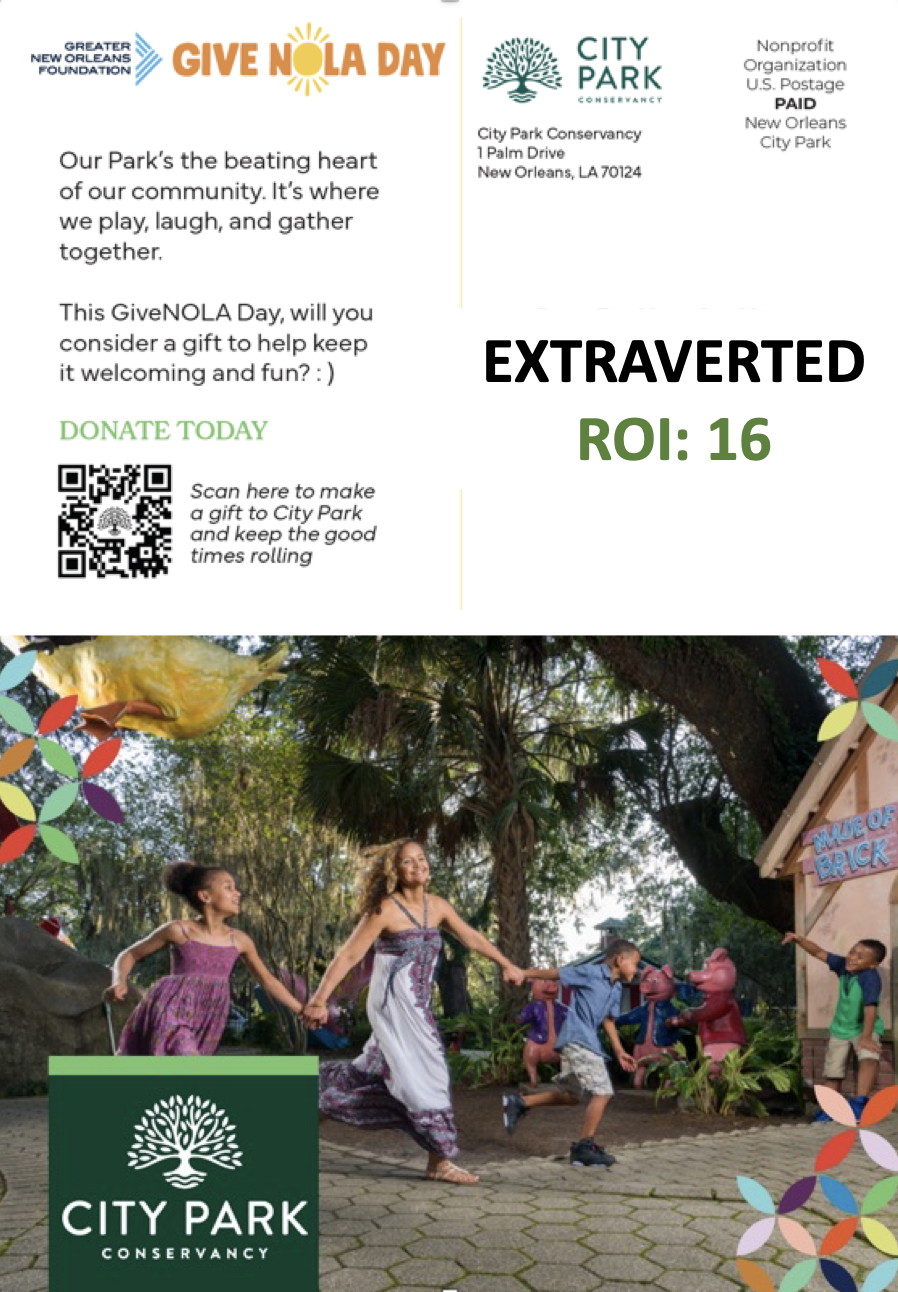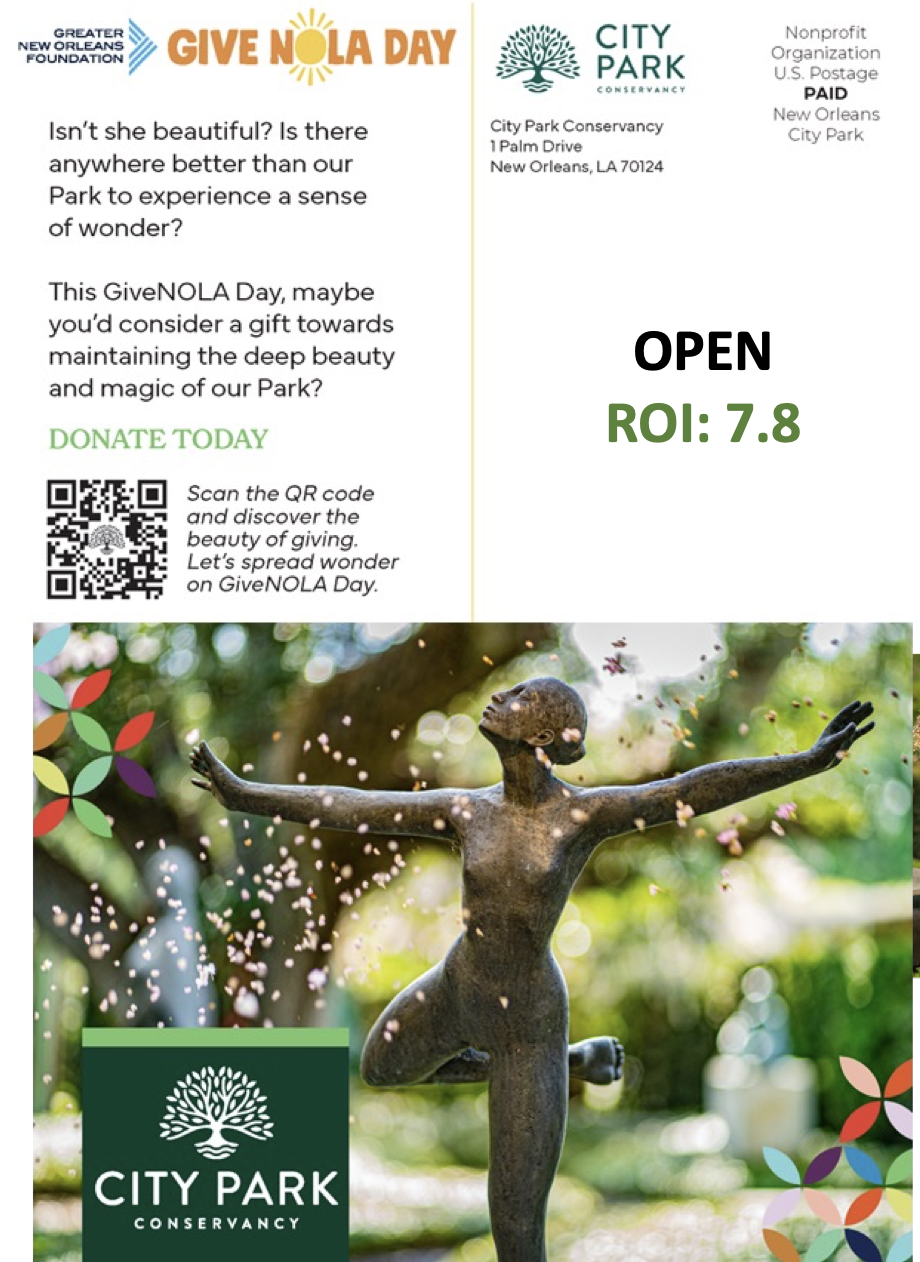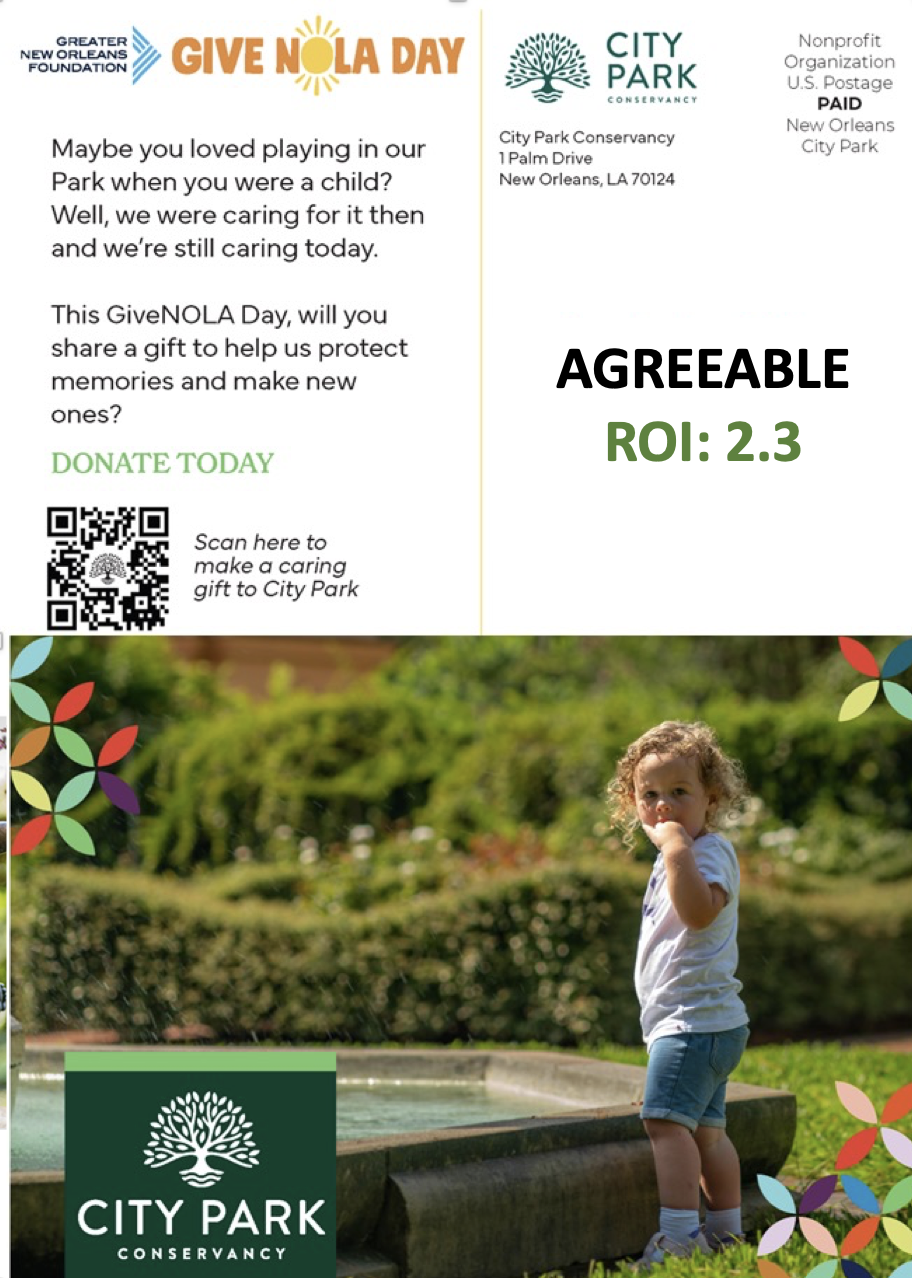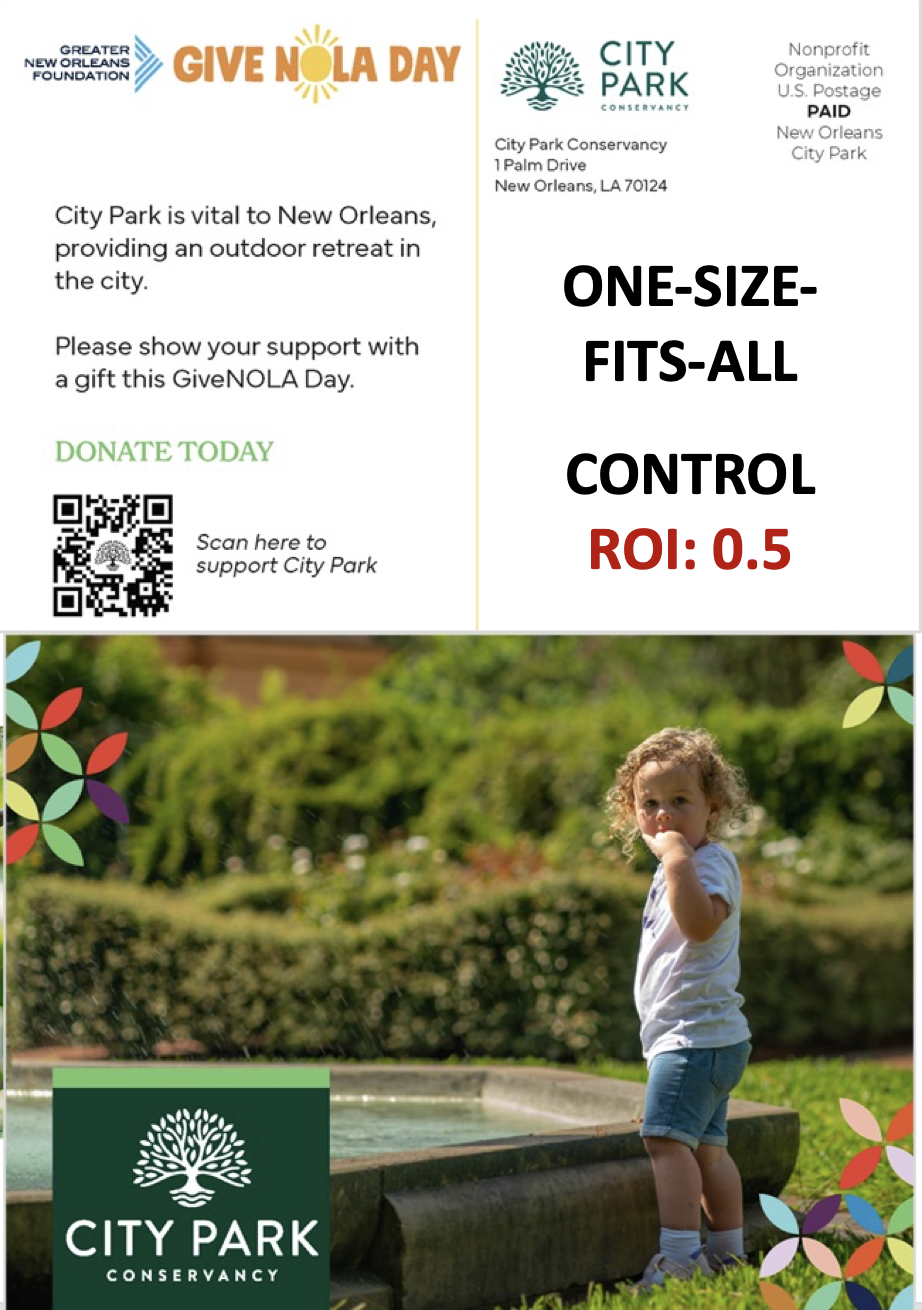The theory
We can all agree that if you match appeal copy to the recipient, their attention, engagement and response will go up. Great in theory, but in practice most organizations know very little about the person on the receiving end. Almost invariably what information they have (e.g., demographics, giving history, etc.) does not and cannot explain giving. So, they send a one-size-fits-all appeal hoping the donor will align their perspective with the cause.
Meaningful tailoring is based on a person’s identity (the part of self that aligns with your mission) and/or personality (the way they view and respond to the world) – it’s what we call Personalized Matching.
What we did
In this case, we tested tailoring copy to the recipients’ personality traits. Our traits shape our priorities and guide our attention. Appeals that align with an individual’s personality are more salient, relevant and persuasive.
Using our proprietary models, we segmented NOCP’s donor file by personality trait. We then targeted people who score high in Agreeableness, Openness and Extraversion. We then split each of these personality audiences into control and test groups.
The control groups represent business-as-usual and they all received the same one-size-fits-all postcard. Each of the test groups received a postcard which was tailored to match that specific trait.
- Open people assign value to aesthetics, beauty and wonder and are naturally curious.
- Extraverted people are sociable, energetic, and cheerful. They enjoy the company of others and are “the life of the party.”
- Agreeable people are natural helpers, they like to say yes, and are motivated by providing care, and preventing harm.




